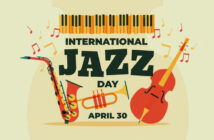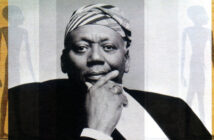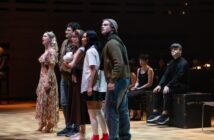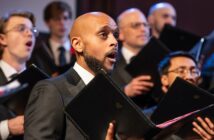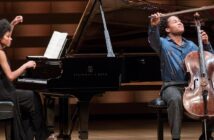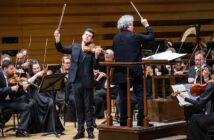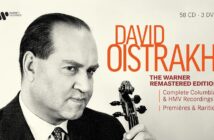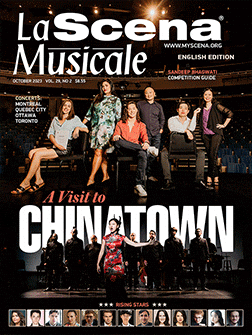
This page is also available in / Cette page est également disponible en:
![]() Francais (French)
Francais (French)
Dominated by brass, reeds and drum kits, string instruments have never figured prominently in the world of jazz music. With the exception of the double bass, other bowed instruments are not heard that much in more conventional forms of jazz, free improvised music being somewhat more accommodating to them.
If cellists and violists are seen or heard rarely, violinists have had the most exposure in jazz settings. Pioneering figures like Eddie South and Joe Venuti held their ground in the era of classic jazz, as did Europeans Stéphane Grappelli and Svend Asmussen and, more recently, consummate fiddlers such as Jean-Luc Ponty, Michael Urbaniak and Dominique Pifarély, who turned heads during the jazz fusion wave of the 1970s.
When not cast as soloists, string players were hired to back jazz combos and lend them an air of legitimacy, holding long tones and sawing away tremolos for added sentimental value. In years past, and to a lesser extent nowadays, the temptation to play over string accompaniments has lured plenty of jazzers striving to reach wider listenership, much to the chagrin of dedicated jazz fans left biting their lips.
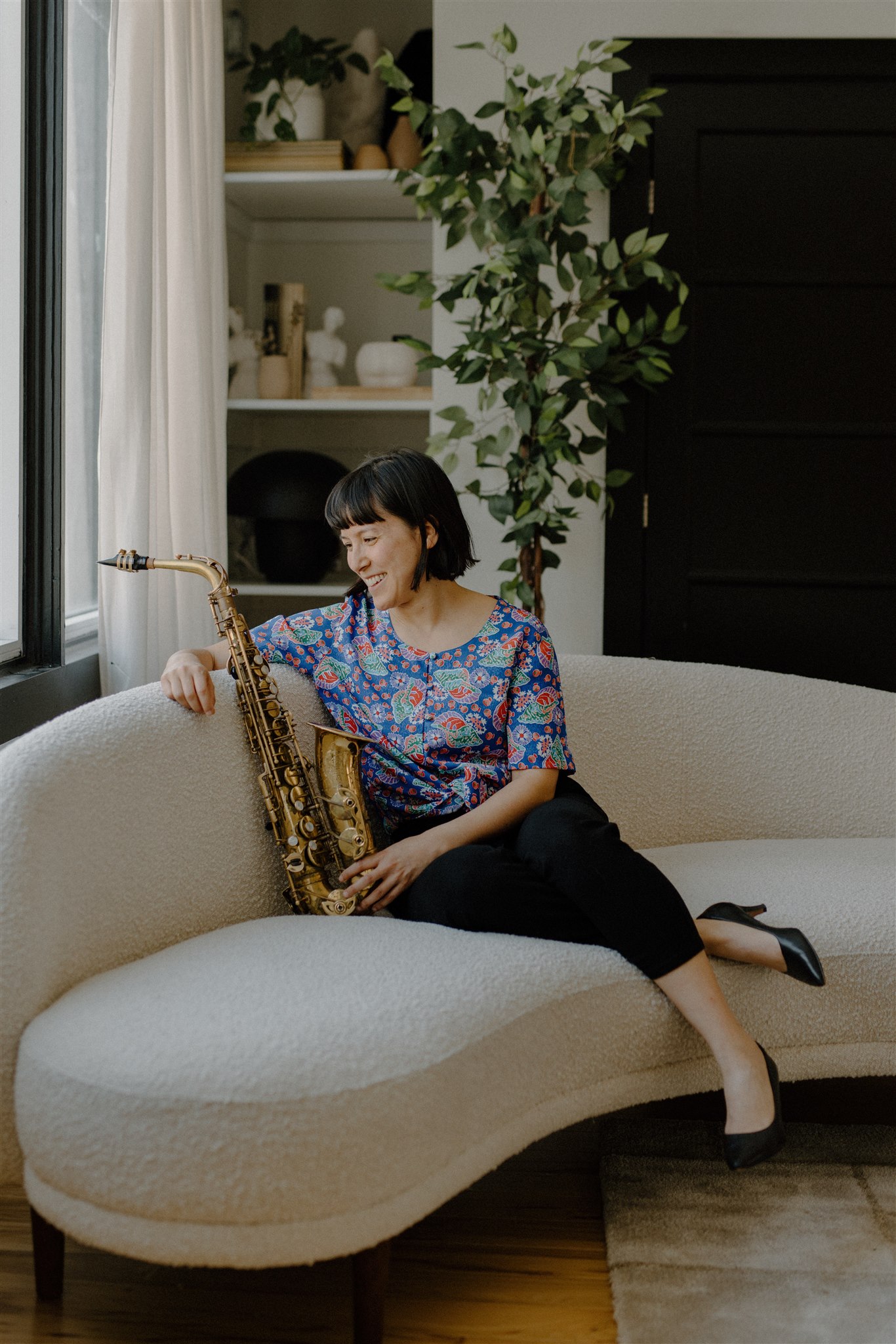
Queried on this instrumental configuration, the artist explained the genesis of her “programmatic work” in a recent conversation — a term proposed by the writer that she finds quite suitable. “It all began for me before the pandemic set in,” Au says. “In 2019, I was commissioned to write a work by Koerner Hall in Toronto, and the Royal Conservatory. Mervon Mehta of that hall then invite me to present a work for a concert I didm’t know at that time that would a cross-cultural flavour for the 21C new-music festival. I wound up doing the first part of double bill headlined by the American pianist Danilo Pérez and his project Global Messengers. The première took place in January 2020, six weeks before the first lockdown.”
As for the subject matter, Au chose to dig into her family history, and a unique one at that. Her father, of Southern Chineese descent emigrated to Canada from Malaysia, where he met the musician’s mother, a native Canadian whose ancestors were Polish Holocaust survivors who had escaped to Israel. In her youth, Au listened to stories from both of her parents and spent time leafing trough family photo albums that all inspired her to created eight pieces scored for her jazz quartet, but with only one violin and cello added. Taking advantage of the lengthy lockdowns, she expanded the scores, adding viola and second violin parts, along with five more pieces, this expanded version being the object of the present album done last year and now ready for its official release, available thereafter on other platforms.
For anyone with a jazz pedigree like Au, writing for strings may seem pretty out-of-the-box, unchartered territories for a wind player. Not so, according to her. “In 2011, I received some valuable hands-on training in Holland, working for the semi-popular, semi-classical Metropole Orchestra under the direction of the famed arranger Vince Mendoza. Following my time with that orchestra, I spent about five years as Mendoza’s copist, which gave the wherewithal to write the string parts for my own project.”
The strings on the album define the tone of the music—reflective on the whole, and totally understandable in relation to the meaningful stories dear to the artist. Cast in their roles, the strings adhere to their scores save for one improvised violin excursion by the lead, Aline Homzy—a rare and even refreshing exception to the general rule.
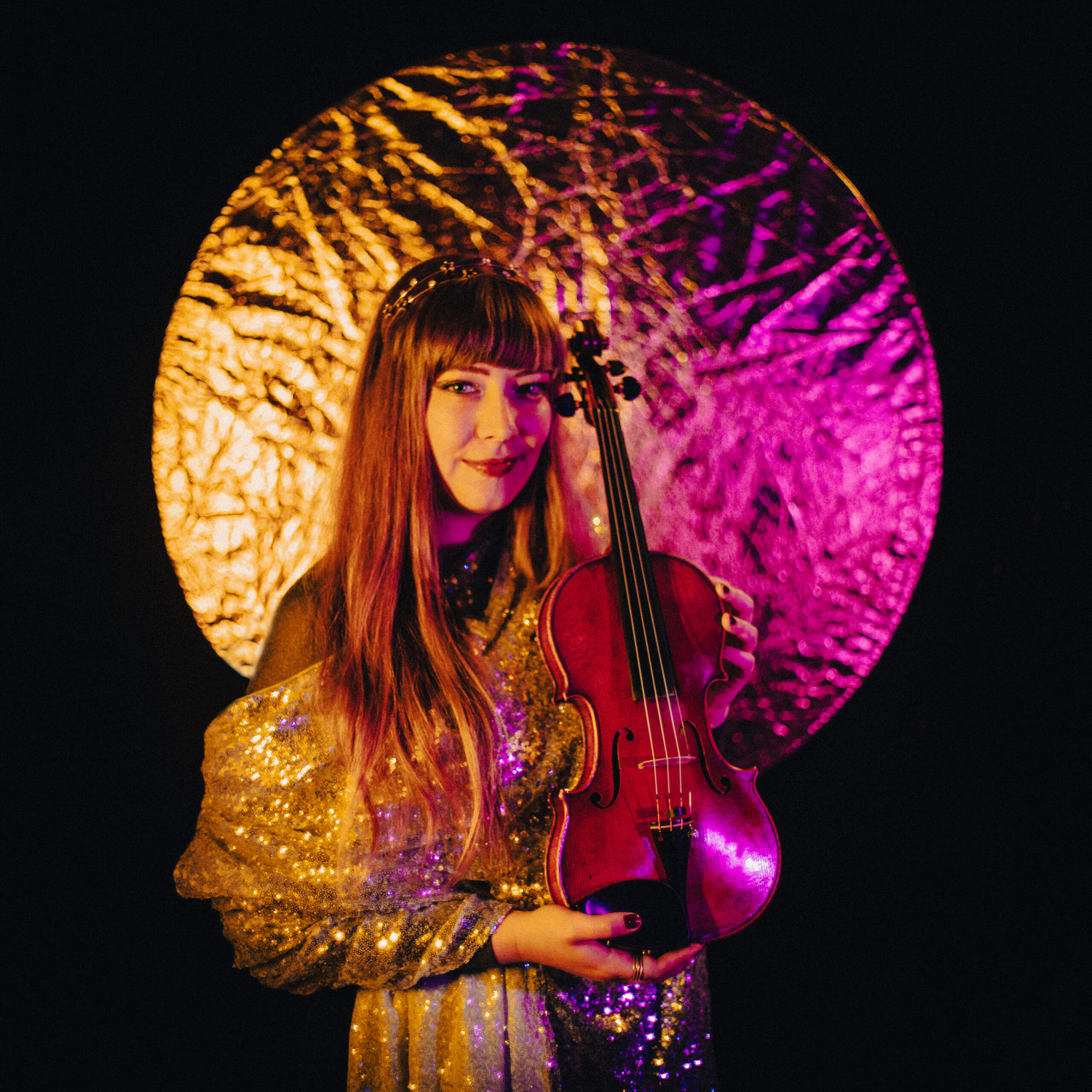
As the daughter of one of Canada’s most respected educators and jazz scholars, Andrew Homzy, the Montreal-native violinist was influenced early in life by the music her father played and taught at Concordia University. He retired over a decade ago. Encouraged by her parents to at least try an instrument, she took to the violin at age 5 and started out, as so many youngsters do, in the Suzuki method, before pursuing the formal academic training thereafter.
“It was all classical till that point,” Homzy recalls, “but at my graduation recital, I played an encore with my father at the piano, the standard Lady Be Good. I came to a crossroads at that moment: I felt a need to create my own sounds rather than reproduce those of others.”
Moving to Toronto in 2008 to enrol at Humber College, she was now swimming in that institution’s full-fledged jazz program, where she was in her element. She has since joined the Humber teaching staff as an instructor.
Fast forward to this year, the now jazzing fiddler released éclipse in August, marking her debut as the leader of a quintet she calls Aline’s étoile magique. The 11-track offering consisting entirely of originals, released on Elastic, combines her sound with those of a guitar, bass, drums, her partner Michael Davidson on vibes, and accordionist João Frade and vocalist Felicity Williams.
The musical fare on this 50-minute side is upbeat, buoyant and lighthearted, its moods suggesting that of a sonic fairytale, a description that seems to strike a chord with the musician. “Well I guess so,” Homzy says with a slight chuckle, “but I am sort of inspired by something spatial, cosmic if you will, where science and fantasy intermingle, something reflected in the band’s name, I think.”
For her, the album topped off a busy summer spent on the road touring the national jazz festival circuit, marking a high point in her career, hopefully with more to come.
To listen to Aline Homzy’s album go to: alinehomzy.bandcamp.com
Also in the October jazz section this month: Montrealities
Playlist
This page is also available in / Cette page est également disponible en:
![]() Francais (French)
Francais (French)


